Egg Fundamentals
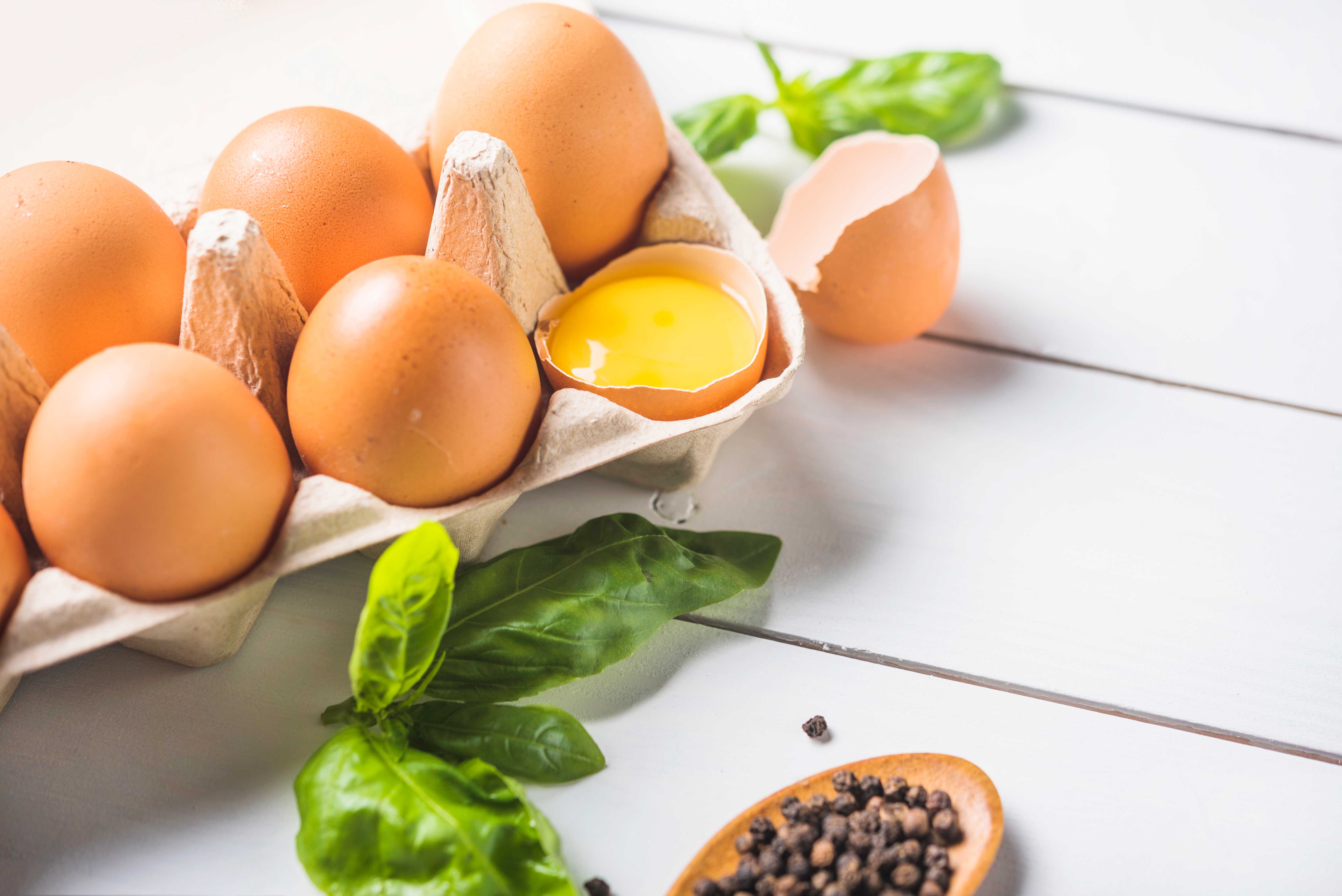
Eggs are one of the most basic and simple cooking ingredients, and cooking with them provide you with so many options. Use eggs for coating, thickening, binding, glazing and baking. Or they can be boiled, fried, baked, poached, scrambled or used in omelettes, soufflés or quiches.
Some quick egg tips:
- Eggs are usually seasoned once cooked, to prevent them from becoming rubbery or drawing water.
- Remember to cook eggs over medium temperatures (in whichever way) as they overcook easily.
- For the best results, use eggs at room temperature. Remove from refrigerator about 30 minutes before cooking. Whole eggs and egg whites beat to a higher volume at room temperature and the shells will not break or crack as easily when boiling eggs.
- Eggs should never be washed and must be kept away from any strong odours, as the shells are porous.
- If fresh, an egg will keep for up to 1 month in the refrigerator, but for only 10 - 12 days at room temperature.
- Egg whites can be frozen very successfully.
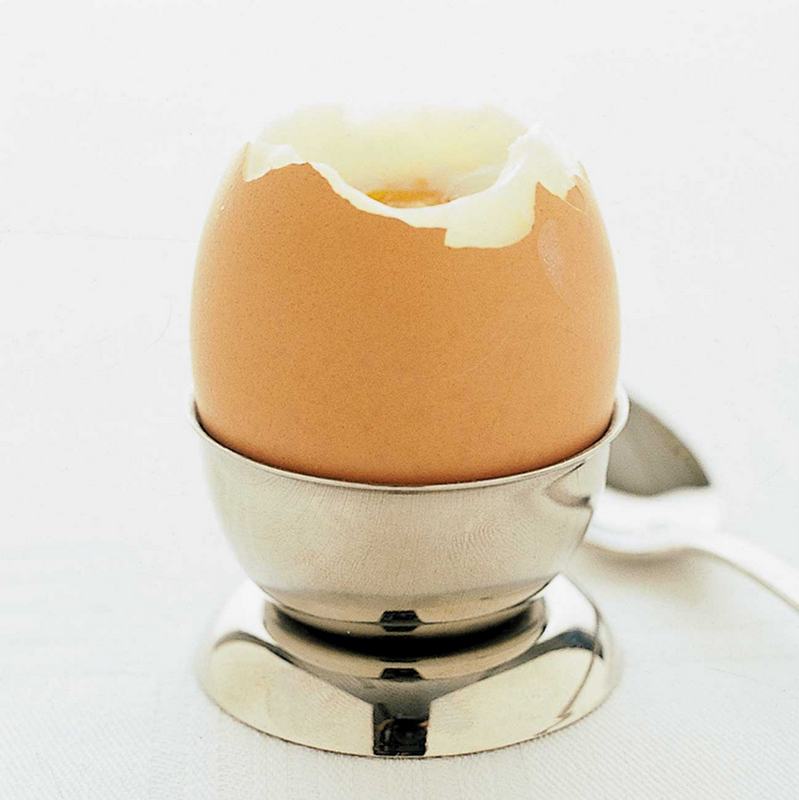
Boiled eggs
Boiled eggs can be used in various recipes or served as a part of a meal. For the best results, cover eggs with enough cold water. This will ensure an even distribution of heat. Heat water and eggs slowly over a medium temperature until the water just boils. Measure the cooking time from when the water starts to simmer. A gentle simmering is all that is needed. Place boiled eggs in cold water immediately, lightly crack shells and peel under running cold water. This ensures eggs peel easier and will prevent a green-grey sulphur-iron ring from forming around the yolk.
Cooking times:
- Soft yolk and white: Boil for 3 - 4 minutes.
- Soft yolk and harder white: Boil for 7 - 8 minutes:
- Hard-boiled yolk and white: Boil for 10 - 12 minutes.

Fried eggs
Fried eggs are done to taste, but there are still a few basic things to remember. A medium temperature is the golden rule – heat your pan over a medium temperature until the Visiotherm® is just below the first red area, then add a little butter or oil. The white should start to set when broken into the pan. Then reduce heat or switch off completely and cover with lid, if preferred. Cooking times will vary according to your taste.
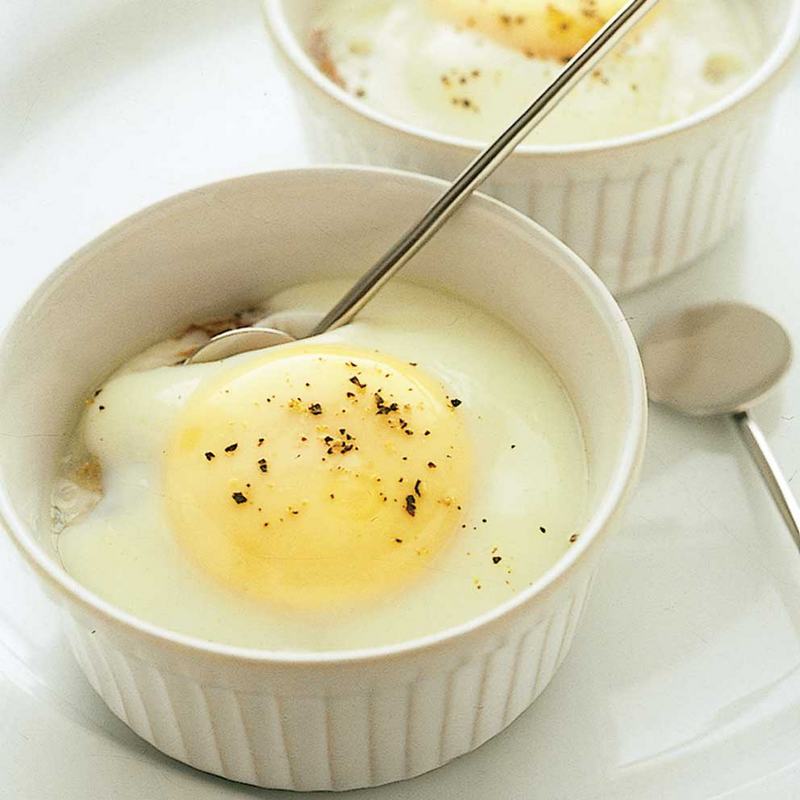
Baked eggs
Baked eggs are often done in little ceramic bowls (ramekins) in a shallow saucepan, with simmering water. Extra ingredients such as vegetables, bits of fish or herbs are placed in the bottom of each bowl and an egg is broken on top. Method: Pour 500 ml water into an AMC Gourmet 24 cm Dome Fry Pan. Heat over a medium temperature until the Visiotherm® reaches the first red area. Place ramekins in water, cover with lid and reduce heat. Bake for 8 - 10 minutes depending on how hard you prefer the yolks.
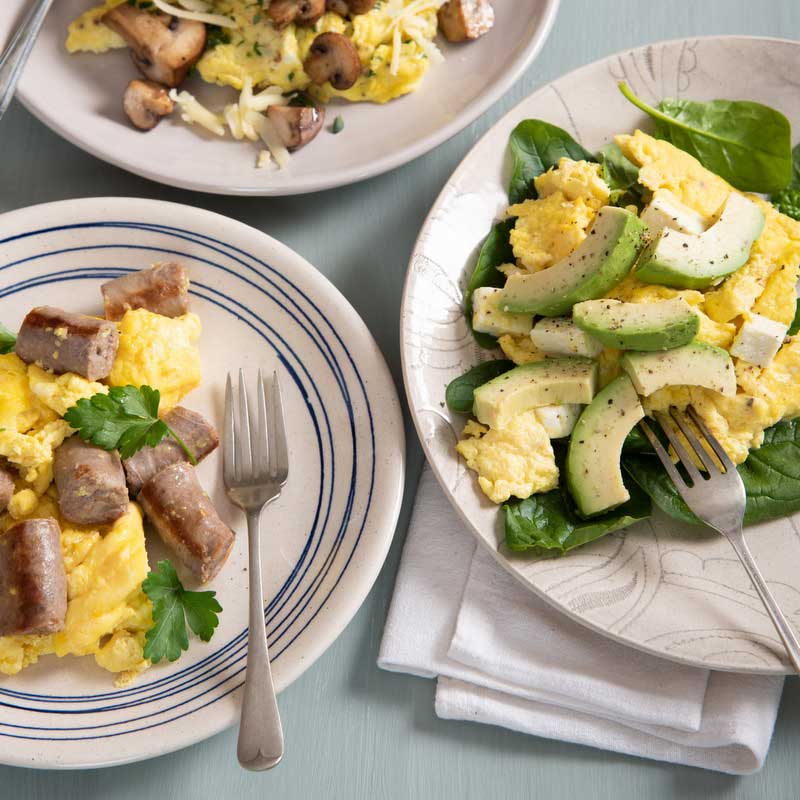
Scrambled eggs
Scrambling eggs at the correct temperature and using the right combination of ingredients are important for great scrambled eggs. If prepared correctly, scrambled eggs will be soft and chunky, not fine and crumbly. The subtle taste of scrambled eggs should never be overpowered by other ingredients. They go very well with asparagus, salmon, other fish and herbs. For a basic portion of scrambled eggs use 2 eggs with 15 ml water per egg. Too much water will cause eggs to separate during the cooking process and become watery. Also use a medium temperature – a pan that is too hot is likely to make your eggs dry and crumbly. Add chunky ingredients once eggs start to set, or right at the end.
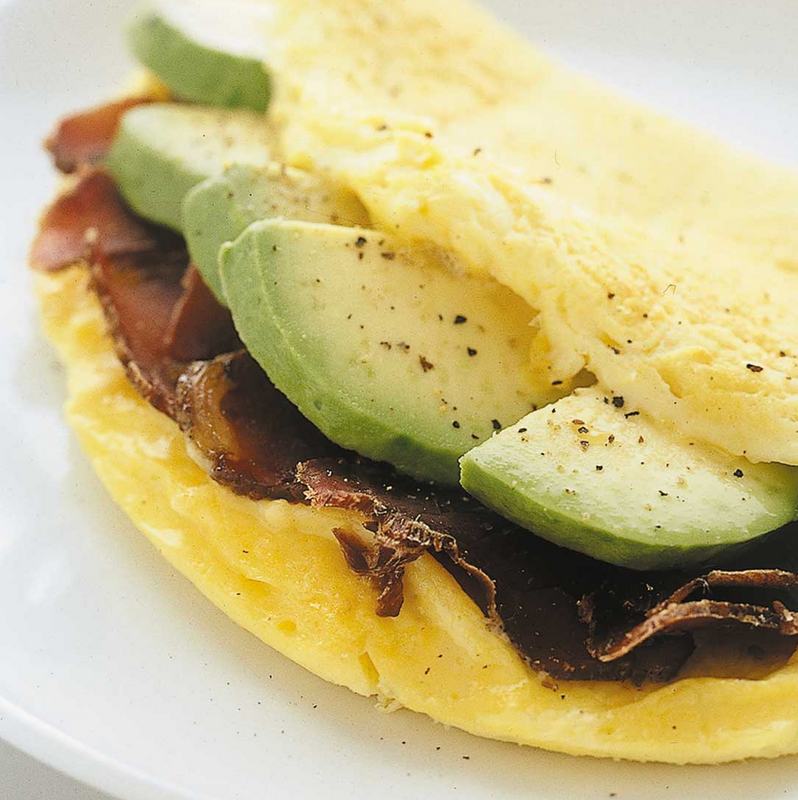
Omelette
Omelette fillings should never overpower the eggs. As with scrambled eggs, 15 ml water per egg is ideal. If too little water is used, the omelette will be rubbery. Milk is seldom used, as it toughens the eggs. The seasoning “rule" for eggs apply - season once cooked. The ideal size of a an for individual omelettes is 20 - 24 cm in diameter. If the end result is rubbery, it means that the egg cooked too quickly. No browning indicates that the temperature was too low. If the omelette is dry, it has been overcooked. This happens when the temperature is set too high and the cooking time is too long.
Share these egg fundamentals for perfect eggs!
Credit
Opening image